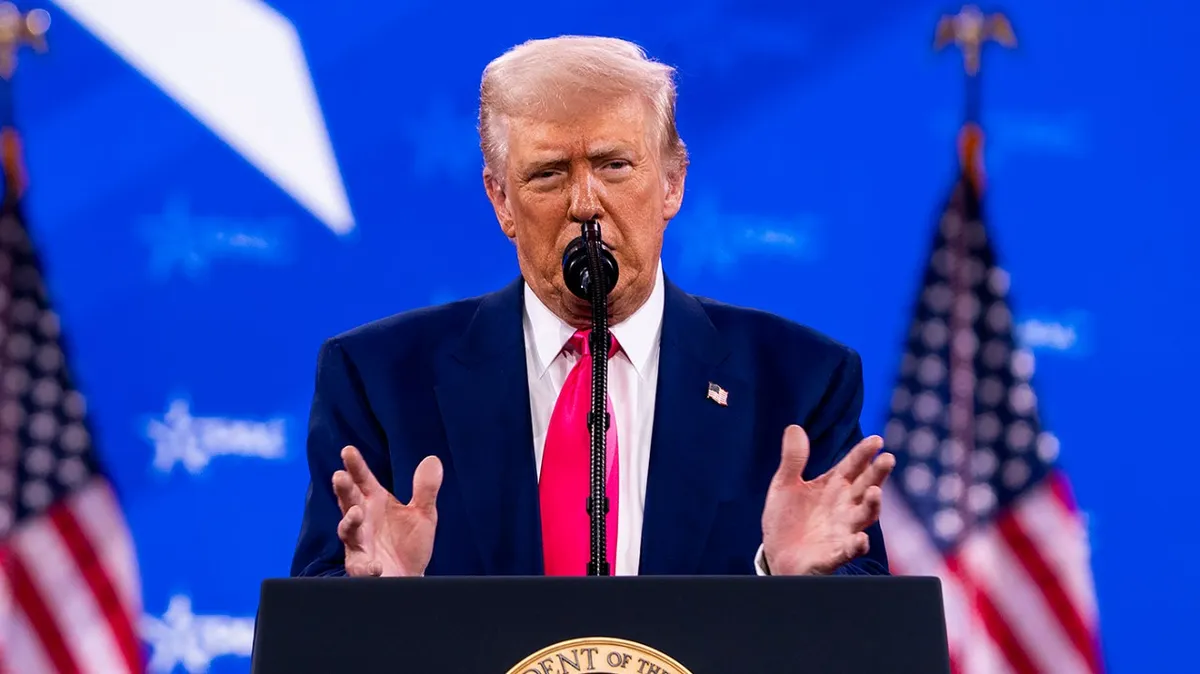
On Thursday, President Donald Trump raised concerns regarding the United States' commitment to defending NATO allies that fail to meet adequate defense spending levels. This statement has cast uncertainty over a fundamental principle of the NATO alliance, which is the collective defense clause outlined in Article 5 of the NATO charter. This clause specifies that an attack on one member is considered an attack on all members, a principle that has only been invoked once, following the September 11, 2001 attacks on U.S. soil.
During a press briefing in the Oval Office, Trump stated, “Well, I’ve said that to them. I said, ‘If you’re not going to pay, we’re not going to defend.’ I said that seven years ago, and because of that, they paid hundreds of billions of dollars.” His remarks signal a potential shift in U.S. policy towards NATO, suggesting that financial contributions could influence the level of military support provided by the United States.
When asked whether he intended to formalize this stance as U.S. policy, Trump referred to it as a “commonsense approach.” He expressed skepticism about whether other NATO nations would come to the defense of the U.S. in the event of an attack, stating, “If they don’t pay, I’m not going to defend them.” This viewpoint has sparked significant debate and criticism, with many arguing that it undermines the solidarity of the alliance.
Trump characterized NATO as “potentially good” but lamented its perceived unfairness, suggesting that the U.S. bears a disproportionate burden of defense spending. His remarks resonate with his previous statements made during last year's campaign, which have been used as ammunition by Democratic critics. Trump has persistently advocated for NATO allies to increase their defense budgets, arguing that the U.S. should not shoulder a heavier financial load compared to other member nations.
NATO members are currently expected to allocate 2 percent of their gross domestic product (GDP) to defense, a target Trump has proposed increasing to 5 percent. The implications of this could lead to a substantial increase in the Pentagon budget, as the U.S. currently spends approximately 3 percent of its GDP on defense. As of last year, 23 out of the 32 NATO countries had successfully met the 2 percent spending threshold.
In light of Trump’s comments, Matthew Whitaker, Trump's nominee for NATO ambassador, assured senators during his confirmation hearing that the U.S. commitment to NATO would remain “ironclad.” This statement contrasts with Trump’s assertions and highlights the ongoing internal discussions about the future direction of U.S. foreign policy concerning NATO.
As the situation develops, the focus remains on how these statements will affect the relationship between the United States and its NATO allies, as well as the overall stability and unity of the alliance.